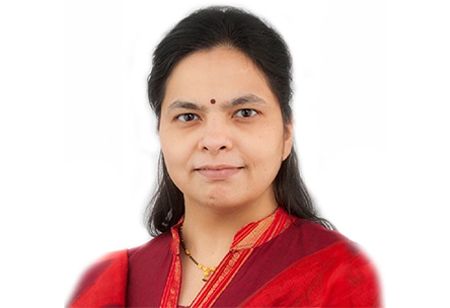Dr. Shilpa Tatake, Group COO, Jupiter Hospital

Dr. Shilpa is a healthcare professional with more than two decades of experience acquired through various positions she has spearheaded. Her expertise lies in operations, strategic planning, facility planning, costing, and pricing. In a recent interaction with Thiruamuthan, Correspondent, India Pharma Outlook, Dr.Shilpa shared her thoughts on numerous emerging trends and tech advancements that are reshaping the healthcare ecosystem in India. Below are the excerpts from the exclusive interview –
How is the healthcare ecosystem in India shaping up in recent times, especially post covid?
Of late, the healthcare ecosystem is undergoing a serious metamorphosis, and this is being further accelerated by the increased digitization in the sector especially post covid pandemic. One of the key factors that are driving the widespread digital transformation in the healthcare sector is the increasing adoption of cutting-edge technologies such as AI/ML to offer patient-centric care. Also, there has been a tremendous shift in customer expectations post covid, wherein they now expect complete transparency, immediate response, and faster processes in terms of diagnostics, admission, treatment, billing, and discharge. As a result, hospitals and other healthcare organizations are now heavily relying on digital technologies to optimize their processes and provide enhanced customer experience to the patients. Additionally, with many hospitals in India getting listed on the stock exchange, we are witnessing significant investments happening in the healthcare sector lately, and even the general population is showing a lot of interest in investing in healthcare organizations.
Tell us about the importance of streamlining operations in the healthcare sector, while simultaneously being agile and flexible to change.
Since operations in the healthcare sector are largely human-dependent and labor-driven, it is paramount for every healthcare organization to have the necessary SOPs in place to optimize performance and process outcomes. Although this standardization of processes is extremely important for clinical pathways, healthcare organizations must also make sure that they remain agile and flexible to customize the entire experience as per the patients' requirements. Most importantly, healthcare organizations must keep in mind that consumers in healthcare are also patients and their clinical requirements are not just physical but also psychological and impact the entire family. Thus, it is paramount to have a human touch in every healthcare function, while simultaneously balancing it with the usage of AI and other technologies to ensure a hassle-free experience for patients. Additionally, companies must also identify the bottlenecks that are causing delays in their processes and hindering patient experience by leveraging data analytics and other AI/ML algorithms.
Throw some light on major concerns that exist today in terms of integrating AI into healthcare processes.
For any AI algorithm to produce accurate results, it is extremely critical to ensure the quality of data that is being into the AI model. This becomes even more important in the healthcare setup since it concerns the life of a patient. But today, a major concern for hospitals in integrating AI into their treatment process is the lack of accurate medical history and health data of patients, leading to a delay in commencing the treatment process for the patients. Although the government along with the healthcare industry is now having serious discussions about having a centralized database of patient records to facilitate easy access to patient data for hospitals to integrate AI, this is raising major concerns about the safety and privacy of that patient data. Additionally, there is a severe dearth of skilled medical manpower in the Indian healthcare ecosystem to effectively handle the operations of any AI-integrated system or application.
How are modern-day technologies making quality care accessible and affordable to patients irrespective of their location?
The recent advancements in technology have enhanced the effectiveness of remote care delivery across every corner of the country. By utilizing numerous IoT devices and sensors, doctors are now able to monitor the patient's health from any place even their smartphones. Further, the collected patient data also can be analyzed using advanced analytical tools and AI can derive health patterns and even predict the health condition of patients, enabling doctors and family members to take the necessary actions to ensure the safety of patients' health. Also, telemedicine is gaining widespread acceptance among patients especially post the COVID-19 pandemic. Most hospitals now have their own mobile applications through which the patients can connect with the doctors, share their present medical information, and get their queries/concerns resolved by the doctors without having to physically visit the hospital. This is, in turn, saving a lot of time and money in terms of traveling long distances, especially in our country where people still have to travel to faraway cities to avail quality patient care.
What is the role of EMR in optimizing the insurance process for both the healthcare industry and the patients?
Given the massive benefits that EMR offers to the healthcare ecosystem as a whole, there has been a lot of discussion happening in India recently about having a centralized digital repository of all the patient's medical records. Integrating AI into this will facilitate easy access to the patient's medical records for care providers, patients, and insurance companies.
The advantage for the patient is a seamless insurance approval process, ensuring complete transparency and enabling visibility at every stage of the discharge process. Health care workers find it convenient as a lot of manual work gets avoided and manpower can be optimized.
The entire revenue management cycle becomes seamless with the AI integration and it can be a WIN-WIN situation for all the stakeholders involved.